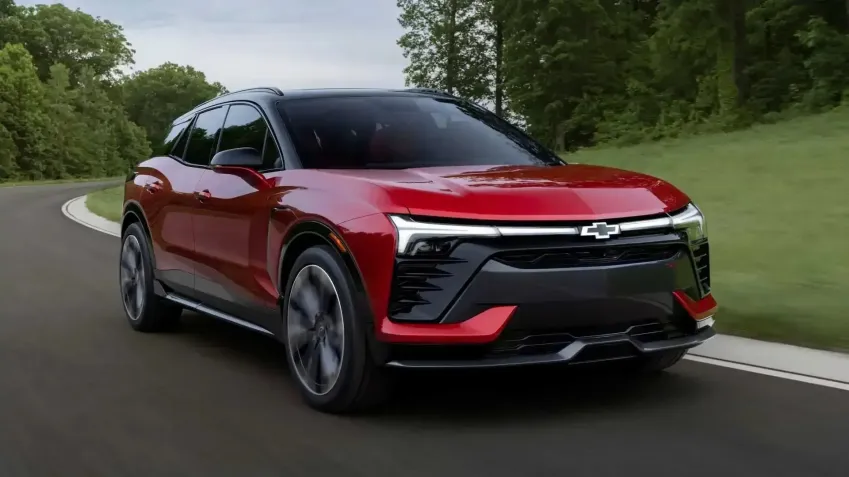In a world increasingly cognizant of climate change and the urgent need for sustainable solutions, the debate of EVs vs Hybrids vs Gas cars has never been more relevant. As of 2023, electric vehicles (EVs) are not just a futuristic vision but a robust part of our present-day reality. According to Bloomberg Green, global EV sales are expected to reach 13 million this year, up 35% from 2022. This article will delve into the current trends in green mobility, comparing the pros and cons of electric vehicles, hybrids, and traditional gasoline cars, and offering insights into the future of transportation.
The Rise of Electric Vehicles in 2023
Why Choose Electric Vehicles?
- Environmental Impact: EVs produce zero tailpipe emissions, making them a cleaner option for the environment. According to the International Energy Agency, electric cars can reduce carbon emissions by up to 50% compared to conventional vehicles.
- Cost Efficiency: Although the initial purchase price can be higher, the cost of ownership is often lower. Consumers save on fuel, maintenance, and, in many regions, benefit from government incentives.
- Performance and Innovation: Brands like Tesla, Rivian, and Lucid Motors continue to push the boundaries with vehicles offering impressive acceleration, advanced autonomous features, and cutting-edge technology.
Charging Infrastructure and Battery Technology
Charging infrastructure has seen significant advancements in 2023. Companies like Tesla are expanding their Supercharger networks, while new players such as Rivian are building exclusive charging stations across the U.S. Battery technology has also evolved, with solid-state batteries promising faster charging times and longer lifespans. PV Magazine highlights that the energy density of EV batteries is improving by about 5% annually.
Hybrid Vehicles: The Best of Both Worlds?
What Makes Hybrids Attractive?
- Fuel Efficiency: Hybrids, such as the Toyota Prius and Hyundai Ioniq, combine an internal combustion engine with an electric motor, offering superior fuel economy.
- Flexibility: They provide the flexibility of using gasoline, avoiding the range anxiety associated with pure EVs. This makes them an appealing option for those not ready to fully commit to an electric vehicle.
- Lower Emissions: Hybrids generally emit less CO2 than traditional gas cars, contributing to a reduction in overall greenhouse gases.
Challenges Facing Hybrids
Despite their advantages, hybrids are sometimes seen as a transitional technology. As EV infrastructure improves, the long-term sustainability of hybrids is questioned. Battery University notes that while hybrids are efficient, they still rely on fossil fuels, limiting their environmental benefits.
Gasoline Cars: Are They Becoming Obsolete?
The Case for Gas Cars
- Infrastructure and Availability: Gasoline vehicles benefit from a well-established refueling infrastructure and tend to have a lower purchase price.
- Variety and Performance: Gas-powered cars offer a wide range of models, including high-performance sports cars and larger SUVs not yet matched by EVs in terms of power and range.
The Downside of Gasoline
The environmental impact is the most significant downside. Reuters Mobility reports that gasoline vehicles account for over 60% of global automotive emissions. Additionally, as governments worldwide tighten emissions regulations, the future of gasoline cars looks increasingly uncertain.
Practical Tips for Choosing Your Next Car
- Assess Your Driving Habits: Consider how far you typically drive. If you often travel long distances, an EV with a high range or a hybrid might be more suitable.
- Calculate Total Cost of Ownership: Factor in fuel, maintenance, and potential incentives. Websites like Edmunds offer calculators to help estimate these costs.
- Check Charging Options: If considering an EV, ensure you have access to charging stations either at home or along your regular routes.
- Research Local Incentives: Many regions offer tax credits or rebates for purchasing electric or hybrid vehicles. Check local government websites for the latest information.
Conclusion: What Does the Future Hold?
As we move toward a more sustainable future, the choice between EVs, hybrids, and gasoline cars depends on personal needs and environmental consciousness. The ongoing advancements in battery technology and the expansion of charging infrastructure are likely to tilt the balance further in favor of electric vehicles. By 2030, many experts anticipate that EVs will dominate the automotive market, driven by technological innovation and environmental necessity.
Are you ready to make the switch to greener mobility? Whether you choose an electric, hybrid, or gasoline car, understanding the trends and making informed decisions will ensure you’re on the right road for the future. What’s your take on the future of green mobility? Share your thoughts in the comments below!

